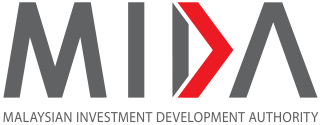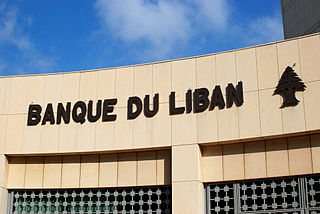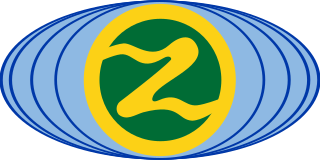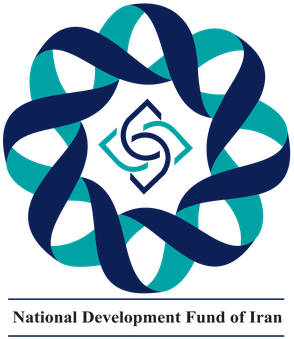
The New Zealand Film Commission is a New Zealand government agency formed to assist with creating and promoting New Zealand films. It was established under the New Zealand Film Commission Act 1978.

The Malaysian Investment Development Authority, abbreviated MIDA, previously known as Malaysian Industrial Development Authority is the government's principal agency to oversee and drive investment into the manufacturing and services sectors in Malaysia. Starting operations in 1967, MIDA was given the mandate to promote investments in the manufacturing and services sectors; and to advise the Ministry of International Trade and Industry (MITI) on industry matters including the formulation of related policies.

Banque du Liban is the central bank of Lebanon. It was established on August 1, 1963, and became fully operational on April 1, 1964. In 2023, Wassim Mansouri stepped up as interim governor of the Banque du Liban after Lebanon failed to name a successor to Riad Salameh, whose term finished in July 2023. Salameh, who was chairman for 30 years, has been accused of corruption, money laundering and running the largest Ponzi scheme in history; he was additionally labeled "the world’s worst central banker". He is currently under sanctions by Canada, the United Kingdom and the United States.
Taxation in Iran is levied and collected by the Iranian National Tax Administration under the Ministry of Finance and Economic Affairs of the Government of Iran. In 2008, about 55% of the government's budget came from oil and natural gas revenues, the rest from taxes and fees. An estimated 50% of Iran's GDP was exempt from taxes in FY 2004. There are virtually millions of people who do not pay taxes in Iran and hence operate outside the formal economy. The fiscal year begins on March 21 and ends on March 20 of the next year.
Kerala State Industrial Development Corporation Ltd. is the industrial and investment promotion agency of the Government of Kerala (India), for the promotion and development of medium and large scale units in the State of Kerala. As the Nodal Agency for foreign and domestic investments in Kerala, KSIDC provides support for investors, besides processing various incentive schemes and facilitating interaction between the government and the industrial sector.

Vibrant Gujarat, also referred to as Vibrant Gujarat Global Summit, is a biennial investors' global business event that is held in the state of Gujarat, India. The event is aimed at bringing together business leaders, investors, corporations, thought leaders, policy and opinion makers; the summit is advertised as a platform to understand and explore business opportunities in Gujarat. The summit's primary objective is to promote Gujarat as an attractive investment destination and to facilitate partnerships and collaborations across different sectors. Summit began in 2003 and is now held every two years.

Foreign direct investment in Iran (FDI) has been hindered by unfavorable or complex operating requirements and by international sanctions, although in the early 2000s the Iranian government liberalized investment regulations. Iran ranks 62nd in the World Economic Forum's 2011 analysis of the global competitiveness of 142 countries. In 2010, Iran ranked sixth globally in attracting foreign investments.

The Ministry of Micro, Small and Medium Enterprises is the ministry in the Government of India. It is the apex executive body for the formulation and administration of rules, regulations and laws relating to micro, small and medium enterprises in India. The Minister of Micro, Small and Medium Enterprises is Jitan Ram Manjhi.

Agriculture in Lebanon is the third most productive sector in the country after the tertiary and industrial sectors. It contributes 3.1% of GDP and 8 percent of the effective labor force. The sector includes an informal Syrian labor and is dependent on foreign labor for its productivity. Main crops include cereals, fruits and vegetables, olives, grapes, and tobacco, along with sheep and goat herding. Mineral resources are limited and are only exploited for domestic consumption. Lebanon, which has a variety of agricultural lands, from the interior plateau of the Beqaa Valley to the narrow valleys leading downward to the sea, enables farmers to grow both European and tropical crops. Tobacco and figs are grown in the south, citrus fruits and bananas along the coast, olives in the north and around the Shouf Mountains, and fruits and vegetables in the Beqaa Valley. More exotic crops include avocados, grown near Byblos, and hashish. Although the country benefits from favorable farming conditions and diverse microclimates, it relies on food imports, which make up 80% of its consumption.

The Zamboanga City Special Economic Zone (or ZamboEcoZone), otherwise known by its corporate name as Zamboanga Freeport Authority (ZFA), is a special economic zone located in Zamboanga City in the province of Zamboanga del Sur in Mindanao, Philippines. It is the only economic zone located in Western Mindanao.

The Lebanese Center for Energy Conservation (LCEC) is the national energy agency for Lebanon. It is a governmental organization within the Lebanese Ministry of Energy and Water (MEW). LCEC is the technical arm of the Ministry in all subjects related to energy efficiency, renewable energy, and green buildings. LCEC provides energy efficiency and renewable energy programs to the public and private sectors in Lebanon.
Jordan Investment Commission (JIC), previously Jordan Investment Board, is the national investment promotion agency of the Hashemite Kingdom of Jordan.
This article describes the Philippine investment climate.

The National Development Fund of Iran is Iran's sovereign wealth fund. It was founded in 2011 to supplement the Oil Stabilization Fund. NDFI is independent of the government's budget. Based on Article 84 of the Fifth Five-year Socio-Economic Development Plan (2010–2015), the National Development Fund was established to transform oil and gas revenues to productive investment for future generation. It is a member of the International Forum of Sovereign Wealth Funds and therefore is signed up to the Santiago Principles on best practice in managing sovereign wealth funds. Withdrawing any money from this fund requires Khamenei's permission.
Ras Al Khaimah Investment Authority (RAKIA) is a United Arab Emirates investment authority in the Emirate of Ras Al Khaimah. It issues licenses to operate within RAKIA owned special economic zones, provides business facilities and warehouses and provides investment funding.

The Nepalese Ministry of Minister of Industry, Commerce and Supplies is a governmental body of Nepal to monitor and manage industries of the country.

The Nigerian Capital Development Fund (NCDF) is an organization dedicated to impact investing and promoting economic development in Nigeria. Established with the aim of fostering a resilient entrepreneurial ecosystem, NCDF provides essential support, capital, and resources to entrepreneurs, start-ups, and early-stage businesses. The organization's efforts are focused on facilitating job creation, product development, market expansion, and overall economic growth within the country.

The relationship between Brazil and the World Bank has been successful for many years, despite numerous challenges.

The Costa Rican Foreign Trade Promoter (PROCOMER) is a Costa Rican investment promotion agency responsible for export promotion programs, attracting foreign direct investment, and providing technical and financial support for the administration of Costa Rica's special export regimes.














